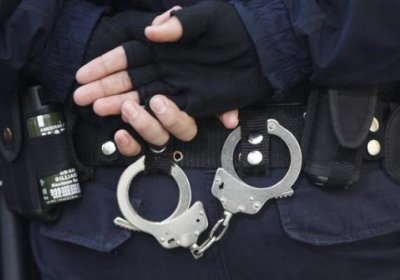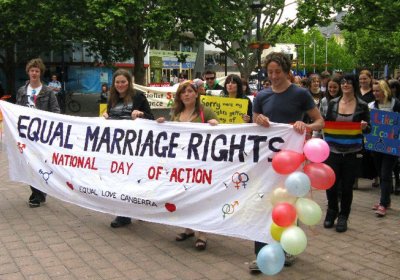Dear Melissa Parke, Federal ALP MP for Fremantle,
As blue collar workers, I and my partner have been involved with our unions over the past decade. In that time, I have seen our unions fight for safety, dignity and a better life for our family.
I welcome the "not guilty" verdict in the trial of Ark Tribe, but the fact that Mr Tribe was on trial at all is a disgrace. Laws that compel people answer questions in secret, do not guarantee people access to lawyers of their choice and involved other breaches of basic human rights should disgust you.
Australia
Western Australia’s proposed “stop-and-search” laws look dead in the water after the National Party opposed the bill on November 11.
The proposed laws were to expand WA police powers to search people without having to provide grounds for suspicion. The laws would also allow the police minister to declare areas in which police had the power to arbitrarily stop and search people.
When the Victorian Parliament decriminalised abortion two years ago, the battle was finally over, right? Then why is the Fertility Control Clinic in East Melbourne still targeted by anti-abortion zealots? And why, after five years, has Melbourne City Council started harassing clinic defenders, potentially handing a victory to those same zealots?
Green Left Weekly spoke to some of the progressive candidates running in the November 27 Victorian state elections.
* * *
Stephen Jolly
Stephen Jolly is the Socialist Party candidate for Richmond. He was elected to the City of Yarra council in 2004. He first came to prominence in the campaign to reopen Richmond Secondary College. He spoke to GLW’s Narendra Mohan Kimmalapati.
What is your platform for the election?
The Australian National University’s (ANU) sexuality department not only provides an invaluable support service to lesbian, gay, bisexual, transgender, intersex and queer students on campus (LGBTIQ), it is also unashamedly political.
For example, it has thrown its weight behind the campaign for equal marriage rights.
So perhaps it is not surprising that the department has been challenged by homophobia on campus.
In May during Pride Week, 500 posters were ripped down.
The Organisation for Economic Cooperation and Development’s (OECD) Economic Survey of Australia, released on November 15, called for an increase in the rate and scope of the goods and services tax (GST) and a cut in business taxes.
The rich countries’ economic club also called for higher road tolls, greater labour productivity and a price on carbon.
The OECD’s annual survey congratulated the Labor government for avoiding recession during the global financial crisis but also demanded it undertake further “structural reforms to strengthen productivity”.
Remembrance Day, on November 11, was celebrated again this year in the Australian media with pictures of red poppies and flag-draped coffins and historic photos of Australian soldiers who gave “the ultimate sacrifice” from the human-made wasteland of Flanders to the stony deserts of Afghanistan.
Paying tribute to the ten soldiers killed this year in the long war in Afghanistan, Governor-General Quentin Bryce said that Australians were good at remembering: “We seem to know what we ought to hold onto and what is best let go.”
Natural gas is a finite resource. Once it is depleted, it cannot be renewed. It is extracted from coal beds and consists primarily of methane. Methane is 72 times worse than carbon dioxide — the most well-known carbon pollutant — as a greenhouse gas.
The City of Sydney plans to use natural gas as the primary fuel to transition away from coal-fired electricity towards low-carbon energy by using a method of energy production known as trigeneration.
The Australian National University’s (ANU) sexuality department not only provides an invaluable support service to lesbian, gay, bisexual, transgender, intersex and queer students on campus (LGBTIQ), it is also unashamedly political.
For example, it has thrown its weight behind the campaign for equal marriage rights.
So perhaps it is not surprising that the department has been challenged by homophobia on campus.
In May during Pride Week, 500 posters were ripped down.
Labor special minister of state Gary Gray must be stupid if he thinks we should feel sorry for him. Gray’s pay went from $675,000 a year to $130,000 when he left Woodside Petroleum to become a politician.
Gray wants to close the pay gap between corporate CEOs and politicians — and not by cutting obscene CEO pay. He would prefer to widen the gap between politicians and the people they represent.
The South Australian Labor government’s public service cuts were passed through parliament on November 8, ignoring sharp criticism from the Public Service Association (PSA) and widespread protests. Australian Council of Trade Unions president Ged Kearney described the cuts as a form of “political terrorism”, in an address to the PSA that day. She said public funding issues would become increasingly frequent across Australia as governments continue to adopt “neoliberal, global agendas”.
- Previous page
- Page 850
- Next page










